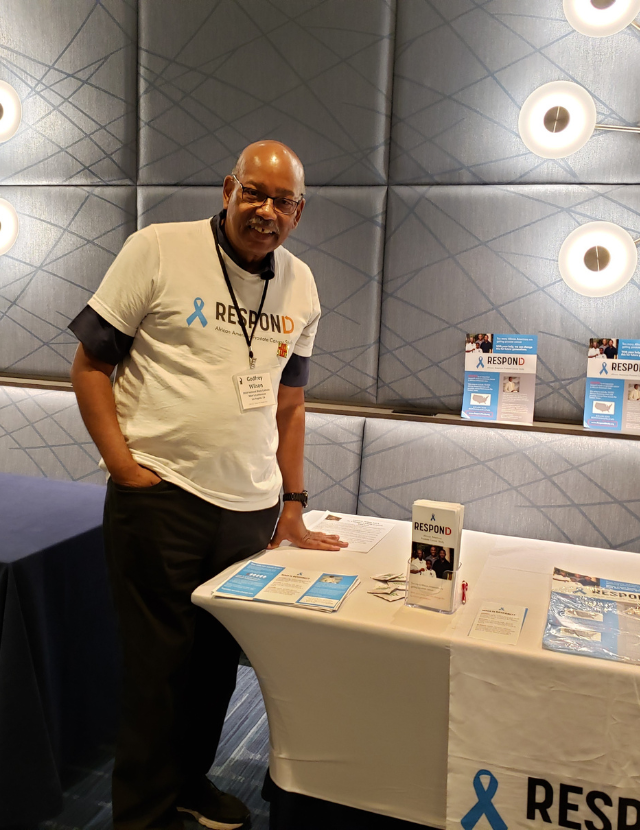California’s Cancer Registry Helps to Inform Research That’s Saving Lives, Advancing Health Equity
Highlights

Data from California’s Cancer Registry is supporting thousands of research studies around the world and helping to save lives by informing cancer incidence and mortality rates, treatment options, improving cancer screening guidelines and health outcomes for patients, as well as advancing health equity.
> 50% of new cancer cases reported to the California Cancer Registry occurred in Asian American/Pacific Islander and Hispanic women
-
Focus Areas
Chronic Disease Prevention, Healthy Communities -
Issues
Cancer -
Expertise
Research – Surveillance
For the past three decades, cancer data collected by California’s Cancer Registry (through 3 regional registries) has supported life-saving research around the globe, helping to inform cancer incidence and mortality rates in neighborhoods and communities, improving the understanding of disparities for effective cancer treatment options, improving cancer screening guidelines, and advancing health equity and health outcomes for patients.
The California Cancer Registry serves as the only data repository in the state for cancer cases, and their data is used to support thousands of research studies and publications on various types of cancers. Research studies utilize data sets from the California Cancer Registry to determine the cause (risk factors), rates and the distribution of different cancers among the population. Researchers rely on complete, reliable and quality data from the Cancer Registry in order to identify patterns of diagnosis and identify disparities in cancer diagnosis by age, geography, race or ethnicity.
This information is then used to inform providers of cancer care and further research that can take a closer look at why these disparities exist and what can be done to eliminate them. Researchers can investigate long-term patterns in cancer occurrences, initial treatments used, and survival across communities and even small subgroups, which can inform decisions on programs focused on improving cancer outcomes, prevention, treatment, and assessment.
Advancing health equity
The region that makes up the California Cancer Registry represents an extremely diverse area and population, allowing the registry to capture a higher representation of certain populations, including racial/ethnic groups and smaller racial/ethnic subgroups such as Filipino or Korean, when compared to the rest of the country. Through the collection of data in California’s geographic area, the Cancer Registry has been able to identify that more than 50% of new cancer cases occur in women and identify high incidence rates of cancer among Asian and Black communities.

The registry helps to advance health equity and provides the data necessary to understand and address where there is a disproportionate impact of cancer on communities, especially historically marginalized communities.Alain Monnereau, MD, PhD
Research Program Director; SEER Principal Investigator, Cancer Registry of Greater California, Public Health Institute
This critical and unique representation of diverse groups has played a key role in the following cancer research outcomes and in advancing health equity:
- The largest research study (RESPOND Study) to ever examine disparities in prostate cancer among African American men is underway and is taking a closer look at factors such as structural racism and social drivers of health.
- Surveillance from the registry supported breast cancer research in Marin County, CA which found elevated breast cancer rates. The research supported future studies in the same region, discovering new risk factors for breast cancer, including hormone replacement therapies and alcohol consumption, leading to changes in clinical practice guidelines for advising women.
- The large and diverse populations of Asian Americans, Native Hawaiians, and Pacific Islanders in California has enabled researchers to conduct detailed studies of these populations, finding highly heterogeneous cancer patterns across the ethnic groups, and uncovering disparities in particular groups which are key in determining life-saving cancer treatment options.
- A collaborative study with UC Davis and PHI’s Cancer Registry of Greater California utilized California Cancer Registry data for the analysis of bladder cancer patients and found that patients with early stage high grade bladder cancer were underutilizing treatments. The study also looked at the effect of race, age and socioeconomic status on treatment disparities.
- Data from the California Cancer Registry supported breast cancer research, and led to the critical finding that LGBTQ+ patients have higher mortality rates after a diagnosis of breast cancer. The research pinpointed disparities in access to care.
- Researchers frequently use California Cancer Registry data and link it to the Multiethnic Cohort Study (MEC). The MEC is a large epidemiological study, following over 215,000 residents of Hawaii and Los Angeles since 1993-1996 to understand factors responsible for the differences in developing cancer and other chronic diseases among ethnic/racial populations.
- Data from the registry shed light on the increasing rates of older women who were dying from cervical cancer. The research informed new preventative screening guidelines for cervical cancer to improve the health outcomes of women ages 65 and older.
About the California Cancer Registry
The California Cancer Registry was established in 1985, through the passage of state law which mandated that all diagnosed cancers in California be reported to the Registry. Today, cancer data is collected from three regions throughout the state—Greater California, Los Angeles and Bay Area—who report data on their region from hospitals or medical centers, surgery centers, laboratories, cancer treatment facilities, and small community-based healthcare practices. The statewide registry supports a vast geographic territory of 58 counties and represents California’s diverse population of nearly 40 million people. The Public Health Institute leads the Cancer Registry of Greater California, which covers 48 of California’s 58 counties.
Work With Us
You change the world. We do the rest. Explore fiscal sponsorship at PHI.
Support Us
Together, we can accelerate our response to public health’s most critical issues.
Find Employment
Begin your career at the Public Health Institute.
